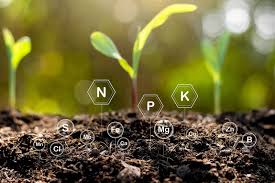Soils
"The Importance of Soil Health: Nurturing the Foundation of Life"
Soil is a vital natural resource that plays a crucial role in supporting life on Earth. It is a complex mixture of minerals, organic matter, water, air, and living organisms. Soils are formed through the weathering of rocks and minerals over long periods of time, and they vary in composition and characteristics depending on factors such as climate, parent material, topography, and biological activity.
Soil has several important functions and benefits. It serves as a medium for plant growth, providing nutrients, water, and physical support to plants. Soils also act as a filter and buffer for water, helping to purify and regulate the flow of water through the landscape. Additionally, soil serves as a habitat for countless organisms, including bacteria, fungi, insects, worms, and small animals, which contribute to its fertility and overall ecosystem health.

Soil is classified into different types based on factors such as texture (proportions of sand, silt, and clay particles), structure (arrangement of soil particles), and fertility (nutrient content). The major soil types include sandy soils, loamy soils, and clay soils, each with their own characteristics and suitability for different types of plants.
Soil erosion is a significant issue that can result from unsustainable land management practices, such as deforestation, overgrazing, and improper agricultural techniques. Erosion leads to the loss of topsoil, which is the most fertile layer of soil, and can have detrimental effects on agricultural productivity and ecosystem health. Therefore, soil conservation practices, such as terracing, contour plowing, and planting cover crops, are essential for maintaining soil health and preventing erosion.
Understanding soil properties and their management is important for sustainable agriculture, forestry, and land use planning. Soil testing and analysis help determine nutrient levels and pH, guiding the application of fertilizers and amendments to optimize plant growth. Additionally, soil science plays a role in environmental studies, land rehabilitation, and assessing the impact of human activities on ecosystems.
Overall, soils are a critical natural resource that supports food production, water filtration, biodiversity, and various ecosystem services. Preserving and managing soils in a sustainable manner is crucial for maintaining a healthy and productive environment for future generations.
Visit: https://bestpaperaward.blogspot.com/
#SoilHealth
#SoilConservation
#SoilScience
#HealthySoils
#SoilBiodiversity
#SoilErosion
#SoilFertility
#SoilManagement
#SustainableAgriculture
#RegenerativeFarming
#SoilTesting
#SoilAmendment
#SoilMicroorganisms
#SoilEducation
#SoilAwareness
Facebook: https://www.facebook.com/profile.phpid=100087106114908
Twitter : https://twitter.com/bestpaperaward
Pinterest : https://in.pinterest.com/bestpaperaward
Linkedin : https://www.linkedin.com/in/esha-gupta-18b2b4245
Instagram: https://www.instagram.com/eshagupta__2022/
Twitter : https://twitter.com/bestpaperaward
Pinterest : https://in.pinterest.com/bestpaperaward
Linkedin : https://www.linkedin.com/in/esha-gupta-18b2b4245
Instagram: https://www.instagram.com/eshagupta__2022/



Comments
Post a Comment